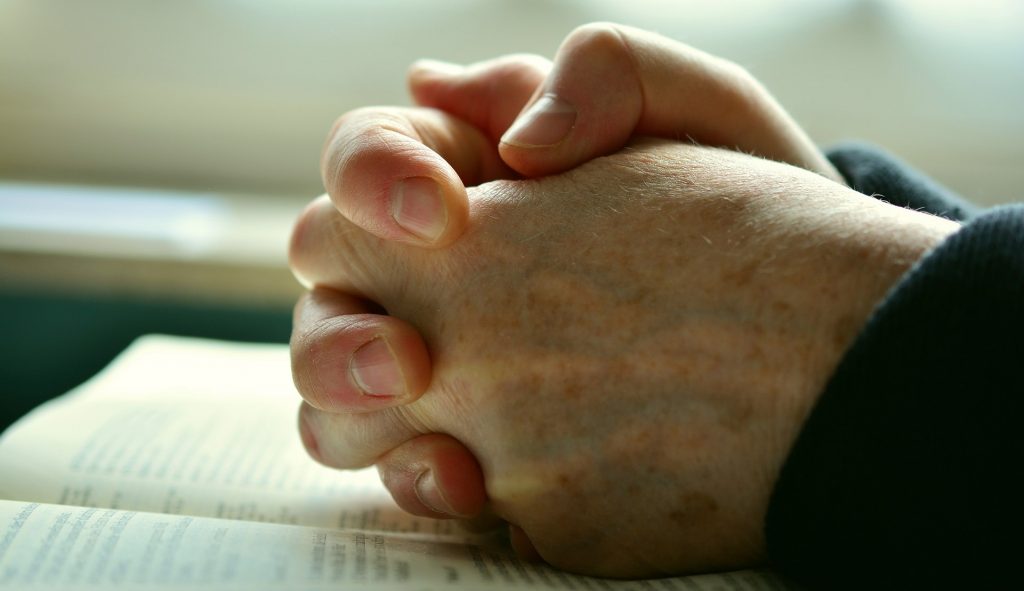
Religion offers a powerful context for the development of traits that help produce happiness in greater abundance.
Of course, religion can also lead to greater amounts of guilt and self-condemnation for real or perceived sin and the sense of being shackled by rules that restrict and control.
What’s the difference between the two experiences, one that leads to greater joy and happiness and one that leads to less of both? The differences may have more to do with differences in attitudes than in the religious doctrine and practices themselves.
The following offers a list of ways religion can increase happiness, and therefore, how it can be used more effectively to reach that goal.
Religion Can Add Joy to Life #7-14
(continued from #1-6)
7. Most organized religion has some sort of redemption of ultimate attainment it provides. Christianity is the most obvious with a Savior who redeems the faithful. To be forgiven of sin, to have it washed clean, to be able to say deep in your heart that the sin no longer exists is a powerful path to happiness.
Many unhappy people are unhappy in part because they cannot come to forgive themselves of their wrongs and imperfections. Being convinced of God’s forgiveness can go far in clearing a sense of joy-sapping guilt.
8. Opportunities to serve in church can also increase happiness as serving others leads to a growing sense of love and meaning and selflessness. Unselfish service to others is an outward focus that has the interesting side effect of producing more happiness.
9. Biblical text preaches a Gospel of hope. And hope ads tremendously to the light-at-the-end-of-the-tunnel condition that helps people endure the pain of life.
Hope that there will an end to the suffering, that there will be peace, hope that eternal ledgers will one day be balanced, that a resurrection and a blissful eternity are forthcoming are all-powerful concepts that draw the believer forward through the painful moments of living.
10. There are Biblical reminders of people like Job who go through so much pain and suffering that it puts our aches and pains in perspective. Viewing our trials from an eternal perspective can have the happy effect of diminishing pain.
We can also be inspired to more noble responses to life’s trials – which itself can diminish the pain such trials often cause.
11. We are children of God. We are His creations. We may not know in its entirety what that phrase really means, but the believer can have faith in this one thing, at least: There is much more potential in each of us than we can likely fathom.
That knowledge can increase our confidence in our ability to master ourselves, to rise above our trials, to begin feeling the growing reality of a happy life, even during crisis and tribulation.
12. The faithful believe they can place their troubles in God’s hands, and thereby release the weight of those burdens from off their own shoulders.
13. Prayer can serve a variety of happiness-producing functions. Prayer can act as a pressure valve that releases built-up pressures of self-doubt or anger and frustration or loneliness as hearts and souls are opened and poured out to God.
The belief that the Creator of the universe cares enough about me and my little island of problems as to listen to my petitions and answer my prayers can send a powerful message of worth, which can be extremely validating. It allows millions to lay their troubles at the feet of their Lord. Again, a very powerful component in creating a happy life.
14. Death is scary. Millions are at or approaching its door. But the fear of death loses its sting as religious people contemplate an eternal life with a loving God. The anxiety of death is at least partially swallowed in the anticipation of an eternal reunion.
The cold blackness of death that is eternal nothingness strikes many as much more terrifying than one that is in many ways no more scary than a permanent change of address, heaven being where our mail will one day get forwarded to.
Afterthoughts
Not everyone is religious. And yet religion has advantageous qualities to the growth of happiness. Not all religions are equally endowed with the best combination of ideas and practices conducive to joy.
And yet religion can be instructive even to the non-religious in our continuing pursuit of joy and happiness in the span of years on planet earth called mortality.
And anything that can aid us in our pursuit of happiness just may be worth the consideration.
What do you think?
- Agree or Disagree?
- What other ways can religion add to happiness?
- What pitfalls to happiness should the religious be aware of?
- I would love to hear from you in the comments!
- Please subscribe if you find value in my posts!
Photo by Pixabay







































Great post. Very well thought out. My greatest joy is knowing that the Creator has made me an heir to His Kingdom; that gives me a great feeling of self-worth. To know that I will be trusted one day with a portion of administration let’s me know He has trust in me and how He is forming me.
Keep up the good work.
Kevin recently posted … Christian Biblical Quotes
Thanks so much Kevin!
It is truly uplifting to know what you know. How could it not send shivers of confidence through every fiber of the soul? Thanks so much for sharing your thoughts here. Did you get a chance to read the preceding post? It had the first 6 reasons faith increases happiness. You can check it out by clicking on it’s title right here: 6 Ways Religious Faith can Increase Happiness.
Excellent article brother.
this part: “We are God’s children. We are His creations. We may not fully know what this phrase really means.”
This is a phrase that we should keep in mind every day. Knowing that we are children of the creator of the world is comforting.